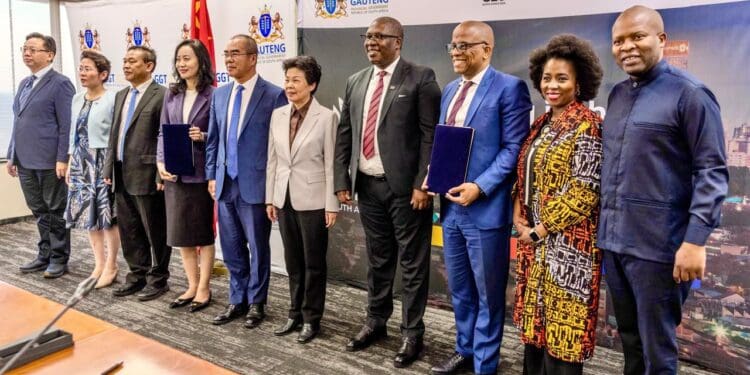Gauteng’s deepening ties with China’s Shandong Province could mark a new phase of opportunity for local small businesses seeking access to export markets and industrial partnerships.
The province recently hosted a high-level delegation from Shandong to strengthen cooperation in key growth sectors, including agriculture, vehicle manufacturing, renewable energy, and education.
The provincial government says the engagement forms part of Gauteng’s broader strategy to attract investment and expand international market access for township-based producers and emerging manufacturers.
South Africa remains Shandong’s third-largest trading partner in Africa, with bilateral trade valued at US$2.63 billion in 2023. Officials say the province wants to build on this momentum by positioning local SMEs within the trade corridor between the two regions.
Gauteng MEC for Human Settlements Tasneem Motara said the partnership is designed to “move beyond symbolic agreements” and ensure that small businesses benefit from foreign investment flows.
“China has been a consistent investor in Gauteng’s industrial and energy sectors. What we are now working toward is an ecosystem where township enterprises can supply into those projects, not stand on the sidelines,” she said.
Entrepreneurs in the automotive and agri-processing sectors have welcomed the initiative but stress the need for targeted inclusion. Ekurhuleni-based manufacturer Lebo Khumalo, who supplies automotive components to local assemblers, said access to Chinese buyers could be transformative.
“We have the capacity to produce quality parts, but logistics and certification barriers make it difficult to break into export markets. If the government facilitates structured partnerships, that changes everything,” Khumalo told Vutivi Business News.
Similarly, Thandi Mthethwa, who runs a small agro-processing business in Bronkhorstspruit, said she hopes trade agreements will be followed by concrete market access for rural and township producers.
“The challenge is not just exporting, it is having the networks and infrastructure to sustain trade. Partnerships like these must include small producers from the start,” she said.
Chinese officials have also expressed optimism about expanding investment into Gauteng’s manufacturing and energy projects. Representatives from Shandong’s Department of Commerce highlighted South Africa’s industrial potential and skilled workforce, noting that cooperation could extend to training exchanges and technology transfer.
Economic analysts say the deal aligns with South Africa’s push for regional diversification under its investment and export strategy.
“Sub-national partnerships like the Gauteng–Shandong one are where real industrial opportunities lie,” said economist Dr. Lwandile Nkosi. “If managed well, they can link township enterprises to global value chains and attract technical know-how that large national agreements often fail to deliver.”
The Gauteng government has confirmed that follow-up working sessions with business chambers and industry bodies are planned to identify SME participation pathways. Officials have indicated that the partnership will also focus on renewable energy components, agricultural exports, and industrial training, sectors considered vital to the province’s long-term growth strategy.
lazola@vutivibusiness.co.za






















































